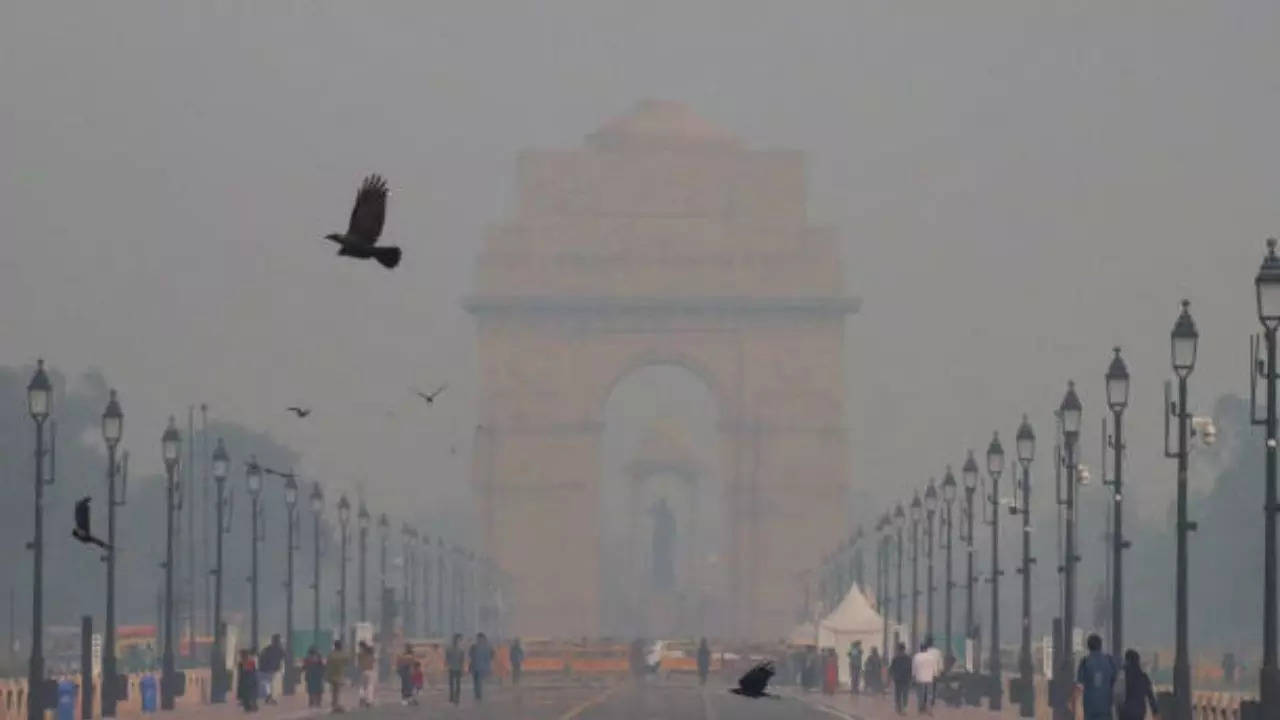Contents
Delhi air pollution reaches ‘severe plus’ with AQI 500, know how severe AQI can increase allergiesHere, see how severe the AQI can make allergy symptoms.Pollutant-Allergen Interactionrespiratory tract irritationexposure to allergenpoor immune responseincreased sensitivitypre-existing conditionsdelayed recovery
-
news
-
Health
Delhi air pollution reaches ‘severe plus’ with AQI 500, know how severe AQI can increase allergies
AQI in Delhi-NCR is in ‘Severe Plus’ category. An AQI between 0-50 is considered “good”, 51-100 is “satisfactory”, 101-200 is “moderate”, 201-300 is “poor”, 301-400 is “very poor”, 401-500 is “poor”. Is considered “serious”. ” and above 500 is a “severe plus”. Read on to learn why poor AQI can make allergy symptoms worse.

Know how severe AQI can worsen allergy symptoms as Delhi’s AQI reaches 500
Photo: iStock
The air quality in Delhi-NCR is in the ‘severe plus’ category and the air quality index (AQI) in most stations has reached 500 marks today, November 19. This is the seventh day that NCR has been covered in a dense layer. Of smog. According to the Central Pollution Control Board (CPCB), the AQI touched the 500 mark at Anand Vihar, Ashok Vihar, Bawana, Jahangirpuri, Major Dhyan Chand Stadium and several other places in Delhi at 5 am on Tuesday.
According to a Hindustan Times report, some of the areas with the worst AQI are Jawaharlal Nehru Stadium (500), Dwarka Sector-8 (498), Mundka (500), North Campus (500), RK Puram (499) and Wazirpur. (500).
AQI between 0-50 is considered “good”, 51-100 is “satisfactory”, 101-200 is “moderate”, 201-300 is “poor”, 301-400 is “very poor”, 401-500 is “severe”. Is considered “serious”. ” and above 500 is a “severe plus”.
Air pollution can have serious effects on one’s health. It can affect respiratory health, heart health and mental health, among others. Air pollution can also worsen allergy symptoms. Poor air quality significantly increases allergy symptoms by increasing the presence of airborne irritants such as pollen, dust and particulate matter.
When the AQI is high, pollutants can irritate the respiratory system, causing inflammation in the nasal passages and worsening conditions such as hay fever and asthma. These pollutants also interact with allergens, causing severe allergic reactions. People with pre-existing respiratory problems are particularly vulnerable on days with poor AQI. This makes it important to stay indoors, use air purifiers and follow medical advice to reduce the impact of poor AQI.
Here, see how severe the AQI can make allergy symptoms.
Pollutant-Allergen Interaction
Higher AQI levels are associated with increased particles that can cause allergies, such as pollen. This interaction makes the allergen more powerful, triggering stronger allergic reactions.
respiratory tract irritation
Pollutants such as nitrogen dioxide and sulfur dioxide in polluted air can cause irritation to the nose and respiratory tract. This inflammation reduces the body’s ability to filter allergens, worsening symptoms such as sneezing, congestion, and wheezing.
exposure to allergen
Poor air quality often traps allergens closer to the ground, prolonging exposure. Combined with pollutants, it increases the intensity and duration of allergic reactions.
poor immune response
Exposure to high pollution levels can weaken the immune system’s ability to manage allergies, making people more vulnerable to severe reactions.
increased sensitivity
Severe AQI can increase sensitivity to common allergens such as dust mites, mold spores and others, even for people with mild or no prior allergies.
pre-existing conditions
People with asthma or chronic allergies may experience increased symptoms during high AQI days, including frequent asthma attacks or severe allergic reactions.
delayed recovery
Pollutants can slow the recovery process from allergy outbreaks by increasing inflammation and reducing lung capacity, especially in vulnerable populations such as children and the elderly.
Get the latest news live on Times Now with breaking news and top headlines from around the world.


